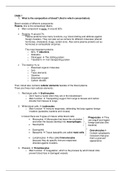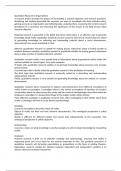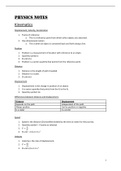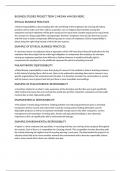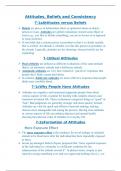Tense:
1. Past Tense:
a. hearer knows time because s/he is told in some way by the speaker
b. hearer knows time because s/he already has relevant knowledge
2. Present Perfect:
a. time seen as pre-present because a period up to the present is specified by the speaker
b. time seen as pre-present because the sense is “at any time before now”
c. time seen as pre-present because the sense is “recently before now”, the hearer is not told the
particular time meant and the hearer has no relevant knowledge yet
3. Past Tense, not present perfect:
a. past time narrative (preterit background description)
b. past time specified by adverbial (last week, yesterday, etc.)
I saw five people today (earlier today), I have seen five people today (so far)
c. subject of the sentence makes it clear that there is reference to a past time, by specifying a time
which doesn’t continue up to now
d. adverbial of place makes it clear that there is reference to past time if it specifies a place at which
the situation occurred/ existed at one particular time
e. both the speaker and the hearer know when before now the situation occurred
f. speaker assumes that the hearer knows there is reference to a past time
g. speaker assumes that the hearer already knows a situation to exist and the speaker gives/ asks for
details of how it came to existence
4. Present perfect, not past tense:
a. a situation starts at an identifiable past time and continues up to the present
b. a situation happens or exists at least once at any time before or up to now
c. a situation happens or exists recently before now, and the speaker may know when, but s/he
presents the information as if the hearer doesn’t know about the situation yet
doesn’t specify a past time
5. The Future:
a. personal arrangements or plans: present progressive
b. scheduled arrangements: present simple (in informal style often present progressive)
c. intentions: be going to + infinitive
d. spontaneous decisions: will + infinitive
e. predictions based on present signs/ indications: be going to + infinitive
f. predictions focusing on a purely future time: will + infinitive
g. indirect assumptions: will + progressive infinitive
Summary:
- past time: identifiable past time
- present perfect: time before now (not identifiable past) and time up to now
- past perfect: time before or up to an identifiable past time
- will + perfect infinitive: a time before or up to a purely future time
1. Past Tense:
a. hearer knows time because s/he is told in some way by the speaker
b. hearer knows time because s/he already has relevant knowledge
2. Present Perfect:
a. time seen as pre-present because a period up to the present is specified by the speaker
b. time seen as pre-present because the sense is “at any time before now”
c. time seen as pre-present because the sense is “recently before now”, the hearer is not told the
particular time meant and the hearer has no relevant knowledge yet
3. Past Tense, not present perfect:
a. past time narrative (preterit background description)
b. past time specified by adverbial (last week, yesterday, etc.)
I saw five people today (earlier today), I have seen five people today (so far)
c. subject of the sentence makes it clear that there is reference to a past time, by specifying a time
which doesn’t continue up to now
d. adverbial of place makes it clear that there is reference to past time if it specifies a place at which
the situation occurred/ existed at one particular time
e. both the speaker and the hearer know when before now the situation occurred
f. speaker assumes that the hearer knows there is reference to a past time
g. speaker assumes that the hearer already knows a situation to exist and the speaker gives/ asks for
details of how it came to existence
4. Present perfect, not past tense:
a. a situation starts at an identifiable past time and continues up to the present
b. a situation happens or exists at least once at any time before or up to now
c. a situation happens or exists recently before now, and the speaker may know when, but s/he
presents the information as if the hearer doesn’t know about the situation yet
doesn’t specify a past time
5. The Future:
a. personal arrangements or plans: present progressive
b. scheduled arrangements: present simple (in informal style often present progressive)
c. intentions: be going to + infinitive
d. spontaneous decisions: will + infinitive
e. predictions based on present signs/ indications: be going to + infinitive
f. predictions focusing on a purely future time: will + infinitive
g. indirect assumptions: will + progressive infinitive
Summary:
- past time: identifiable past time
- present perfect: time before now (not identifiable past) and time up to now
- past perfect: time before or up to an identifiable past time
- will + perfect infinitive: a time before or up to a purely future time



